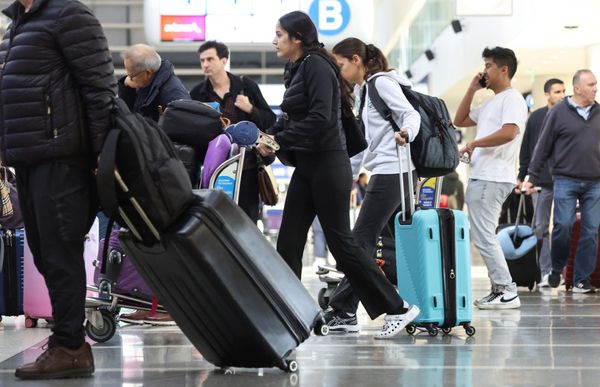
Costco (COST) reported what some considered disappointing sales numbers in November. That has sent its stock slightly down as it ignited concerns over whether the chain would underperform the holiday season.
Sales numbers, of course, aren't really the story for the chain, Instead, the big numbers to watch will be the warehouse club's retention rate and how many new members it added during the quarter. Investors are also waiting eagerly for the chain to comment on a possible membership price increase as we're headed into the period where that normally takes place.
Costco Stock Slides After Q1 Earnings Miss, Weakening Autumn Sales
Costco has been hesitant to raise the price of its membership -- currently $60 for a basic Gold Star membership and $120 for an Executive membership, which comes with 2% cash back up to $1,000 per year -- due to concerns over the economy. It has also not even commented on issuing a special dividend, which the company has done four times over the past 10 years.
CFO Richard Galanti led the call, as he usually does.
Please refresh your browser for updates.
5:59: Richard Galanti has left the building.
5:58: Costco would like to see its new warehouses adds increase to 30 per year, with about half in the U.S.
5:56 Galanti made it clear that Costco will not hold off on a membership price increase simply because the economy is struggling. He noted that the added income would be used to drive down and maintain prices.
They averaged 5 years and 7 months between increases, which would be January 2023.
Galanti also spoke about how the company "has the ability to offer a special dividend."
"That too is a question of when, not if," he added.
5:48 Costco has actually sold more televisions, despite the slowdown in big ticket items, but has seen more sales of smaller sizes.
5:45 "I think the biggest thing seems to be that we do better in countries where we offer Executive memberships...We do a better job of getting you to sign up for an Executive member to start with," Galanti said.
Executive members with a Costco credit card are the "big Kahuna" for the company.
Galanti noted that covid led to an increase in new membership signups.
"We're a good place to shop," he shared.
5:42 The warehouse club has seen more people visiting its stores driven by its gas business. "Over covid we had a higher uptick in new member signups. That's probably slowing a bit," said Galanti.
The warehouse has not seen many trade downs when it comes to fresh food. Previously, when prices were higher, it saw more customers opt for canned proteins over fresh, but that has subsided.
5:37 Costco wants to grow its digital business, but the company plans to keep its focus on driving people to its stores. Galanti mentioned 10% of total sales as a rough goal.
5:32 Costco has seen an increase in the average income of its customers. "We've seen that our penetration of higher-income members has increased," Galanti said.
5:29 The economy goes into the thought process on a membership fee hike, Galanti shared. "It's a question of when, not if. If we have to wait a few months that's fine. I'll be coy as to actually when," the CFO added.
He did not that Costco is still outside the normal timetable as to when it in increases membership prices.
5:26 "We intend to remain competitive," Galanti said about the company's prices. "We're our own biggest competitor," he shared, noting that the goal was to hold or lower prices.
Galanti believes that overall business will remain strong despite slower big-ticket discretionary sales.
"People need to eat," he said.
5:23: "A little over $30 billion of our business is gas," Galanti added.
5:20 p.m. E-commerce sales account for about 10% of Costco's total.
Gas has been a more profitable area for Costco, which has allowed it to hold prices in other areas.
"We've seen strong gallon sales, we're still taking market share," Galanti said.
5:17 p.m. "It rains on all of us during these tougher times, especially with bigger ticket items," Galanti said to explain slower November sales. He noted that food and sundries have been flat while big-ticket discretionary sales have been weaker.
5:15 p.m. Costco online sales were down, but those numbers would have been low single-digit positive if the company included third-party partners like Instacrt. Black Friday and Cyber Monday were the two biggest e-commerce sales days the company has ever had.
"We see some light at the end of the tunnel on inflation...Overall were' seeing a bit of a trend [down]," said Galanti.
Inventory has dropped to about 10% over normal,
"Overall we feel pretty good about it," he added.
5:13 p.m. Reported pre-tax income was up around 35 and the company paid a 21% tax rate, which was a slight increase. For the year, the company expects to pay 26%.
Costco expects to open 24 new warehouses in the year. Seven opened in the first quarter including the company's first in New Zealand. There will also be 3 relocations of existing warehouses.
5:11 p.m. Costco has raised wages three times over the past year which has dragged on earnings slightly.
5:09 p.m. Costco has downsized its commitment to handling its own shipping because overall costs have come down.
5:07 p.m. Fresh foods have been coming down in margin because the company has been holding prices despite rising costs.
5:06 p.m. Renewal rates were 92.5% up from 92.4% in the U.S. 66 million paid members, up 7% with 22 new warehouses, accounting for some of that new increase. Executive members are now 43% of memberships and account for 76% percent of global sales.
5:03 p.m. Foreign earnings were hurt by the strong dollar. Comp U.S. sales were up 9.3%. Take out gas and it's 6.5%. Globally, the company saw a 9.1% comparable-store sales gain minus gas. Shopping frequency was up 2% in the U.S.
5:01 p.m. And, Richard Galanti has joined the call.
4:32 p.m. Costco said diluted earnings for the company's fiscal first quarter, came in a $3.09 per share, up 3% from the same period last year.
Group revenues climbed by 8.1% to $54.437 billion, just shy of analysts' forecasts of a $54.64 billion tally. Membership revenues rose 5.7% to $1 billion. Adjusted same-store sales were up 7.1% from last year, while e-commerce sales were down 3.7%.







